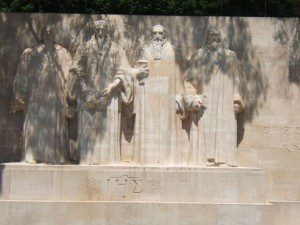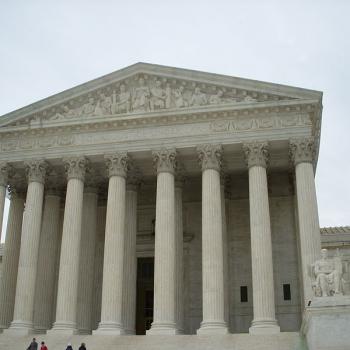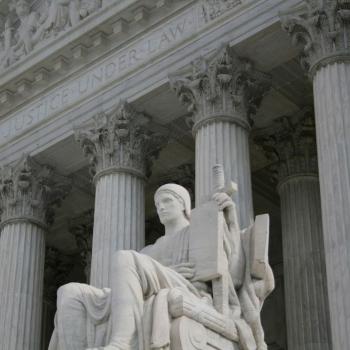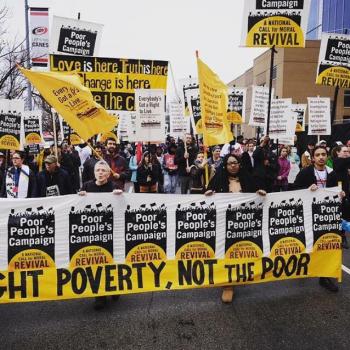 [this is the second in a series of posts addressed to understanding denominations and ecumenism]
[this is the second in a series of posts addressed to understanding denominations and ecumenism]
I’m a PK (preacher’s kid) and a cradle Presbyterian. Family lore has it that when my grandparents married, my grandfather was a Republican and an Episcopalian and my grandmother was a Democrat and a Presbyterian. They agreed that they needed to make some compromises and so they became Republican Presbyterians. My grandmother later confided in me that while everybody knew where they went to church, the voting booth had curtains!
When I went to college, one of my best friends was also the daughter of a Presbyterian minister and as we went through periods of questioning our faith and figuring out what we believed, we used to joke with each other that even when we weren’t sure if we were Christian, we knew we were Presbyterians!
There are a lot of things about Reformed theology that are at the core of my theological understanding of God, the sacred, and what it means to be a Christian. Some Reformed beliefs like infant baptism as a sign of God’s grace; the idea of God’s grace as a divine gift unrelated to my actions, desires or worthiness; and the importance and centrality of scripture are truly foundational to my theology.
Others, more rooted in Calvin, like the idea that some of us are “elected” or chosen and others aren’t; the belief in humanity’s total depravity; and the idea that God has predestined or “freely and unchangeably ordain(ed) whatsoever comes to pass” I find to be at the heart of some of the most perverse and damaging expressions of Christian theology that I know.
But, there are two theological tenets that truly make me Presbyterian – “the priesthood of all believers” and “God alone is Lord of the conscience.” These, for me, are the heart and soul of Presbyterianism and they have shaped my own heart and soul in untold ways. Let me explain.
The idea of the “priesthood of all believers” is the notion that all believers, all Christians, all followers of Christ are, in our essence “priests” or, in the more vernacular sense – we are all called as Christians to minister to each other. The care of the body of Christ is in all of our hands. We are responsible for each other, for taking care of one another. That is truly a radical idea. Each of us is holy and sacred and responsible. Yes, we are called to follow Christ, but following Christ shapes how we live and how we order our society.
While other denominations may affirm the priesthood of all believers on a theological level, for Presbyterians, this belief is at the core of our polity – how we organize the church. At every level of the church (local, presbytery, general assembly), teaching elders (pastors) and ruling elders (ordained laypeople – yes, I know that’s an oxymoron but that warrants another blog post!) share in oversight and administration. This is what we refer to as “shared governance.”
Authority, in the Presbyterian tradition, resides in the community, not in individuals. It is not incidental that we do not have bishops or other hierarchal offices – it is an embodiment of our theology. We believe that the power of the Holy Spirit works in and through us collectively. This is why we form committees to do our work and why we share our governance.
The second belief that I hold dear is represented in The Westminster Confession this way, “God alone is Lord of the conscience, and has left it free from the doctrines and commandments of men (people) which are, in anything, contrary to his Word; or beside it, if matters of faith or worship.” What this means is that we believe that while individuals are shaped, formed, and accountable to communities; in matters of faith, we are accountable to God.
Practically this means even as we stand in a historic tradition of creeds and confessions, we recognize ours is a living faith and that how we understand God, humanity, and the church will change over time. This is why we continue to grow and change theologically as a church and why we develop new statements of faith that express our understanding of our theology in response to the world in which we live.
Of course, we must remember that this theological principle begins with God, not with us. God alone is Lord of the conscience. Because we are also subject to sin in many forms – including misinformation, prejudice, and the potentially narrow perspective of our own personal experience – part of the process of theological discernment involves critical study of an issue, engagement with people whose ideas and beliefs differ from our own, and considering the issue or question within the larger context of our faith informed by scripture, tradition, experience, reason, and science.
One of the main reasons I like this principle, though, is that it is a protection of the possibility of the tyranny of the majority against the minority. It is an important corollary belief to our radical orientation toward collectivism and community. After all, as many people who challenge the norms and expectations of society know, the dark underbelly of community and collectivism is when these notions are used to enforce conformity and police borders and boundaries.
At the same time, this belief is not meant to defend personal idiosyncrasies or distorted theology. The notion that God has instructed me to beat my wife or child or steal money at work represents a distorted understanding of this principle and it is why our own theological exploration must always balance individual and communal discernment.
“God alone” is a fundamental theological belief that ought to allow for Presbyterians to hold a wide range of theological beliefs that differ from one another, but still remain together in communion as the body of Christ. I think our misunderstanding of this most basic feature of Presbyterianism is largely why the PCUSA is seeing so many churches pull away from the denomination. It is not the difference in our theological beliefs that threaten our unity. It is our inability to recognize the profound mystery and freedom represented in the belief that “God alone is Lord of the conscience” that is at the heart of our disunity.
To me, these radical notions of egalitarianism, freedom, and community have always been the heart of the gospel. They are not only what it means to be a Presbyterian, they are what it means to be a Christian but they seem to be the part that the Presbyterians got right!












